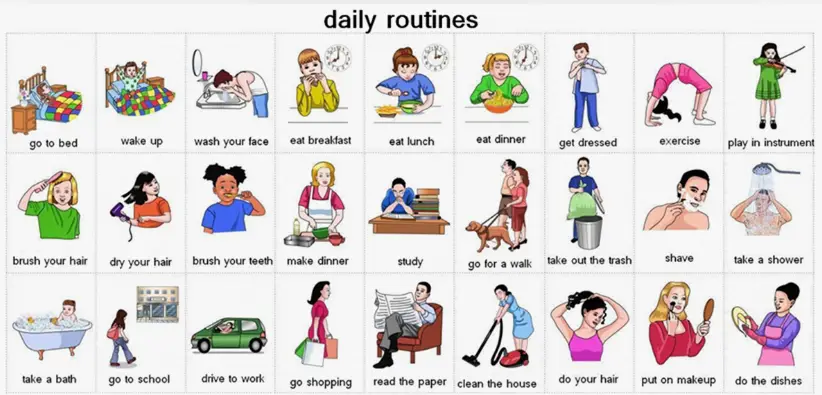Introduction
Mastering English fluency is a transformative journey that opens doors to countless opportunities. Whether aiming for academic success, career advancement, or personal enrichment, achieving proficiency in English is invaluable. In this comprehensive guide, we’ll explore effective strategies and techniques to help you attain fluency in English and go beyond mere communication to true mastery.
Setting Goals for English Proficiency
To embark on your journey to English fluency, it’s essential to set clear and achievable goals. Start by defining both short-term milestones and long-term objectives, which will serve as your roadmap throughout the learning process.
Short-term and Long-term Goals
Short-term goals could include improving vocabulary, enhancing listening comprehension, or mastering basic grammar rules. Long-term goals may involve achieving native-like fluency, obtaining language certifications, or pursuing higher education or career opportunities in English-speaking environments.
Immersive Learning Techniques
Immersing yourself in the English language is one of the most effective ways to accelerate your learning progress. By surrounding yourself with English media and experiences, you’ll naturally absorb the language and develop a deeper understanding of its nuances.
Surrounding Yourself with English
Create an English-friendly environment by changing the language settings on your devices, surrounding yourself with English books, and displaying English vocabulary flashcards in your living space.
Watching English Movies and TV Shows
Utilize streaming platforms to watch movies and TV series in English with subtitles. Pay attention to pronunciation, intonation, and idiomatic expressions used by native speakers.
Listening to English Music and Podcasts
Immerse yourself in English music genres and podcasts covering various topics of interest. Focus on understanding lyrics or spoken content while gradually improving your listening skills.
Formal Education
While self-study can be beneficial, formal education provides structured learning opportunities and access to experienced instructors who can offer guidance and feedback tailored to your needs.
Enrolling in English Courses
Consider enrolling in English language courses offered by reputable institutions or online platforms. Choose courses that align with your proficiency level and learning objectives, whether it’s beginner-level grammar or advanced academic writing.
Hiring a Tutor or Joining Language Exchange Programs
For personalized instruction and conversation practice, hiring a private tutor or participating in language exchange programs can be invaluable. Interacting with native speakers or proficient English speakers will enhance your speaking and listening skills.
Regular Practice and Consistency

Consistency is key to language acquisition. Dedicate time each day to practice English actively and passively, incorporating language learning activities into your daily routine.
Daily Routines for Practicing English
Integrate English into your daily activities, such as reading English news articles during breakfast, listening to English podcasts during your commute, or practicing speaking with a language partner in the evening.
Utilizing Language Learning Apps
Take advantage of language learning apps and software designed to enhance vocabulary, grammar, and language skills. Set achievable goals within these apps and track your progress over time.
Expanding Vocabulary and Grammar
A rich vocabulary and solid grasp of grammar are essential components of English fluency. Explore diverse sources and methods for expanding your lexical and grammatical knowledge.
Reading English Literature and Articles
Immerse yourself in English literature, newspapers, and online articles across various genres and subjects. Pay attention to sentence structures, vocabulary usage, and writing styles employed by authors.
Using Vocabulary-building Tools and Resources
Employ flashcards, vocabulary apps, and online resources to systematically expand your English vocabulary. Practice using newly acquired words in context to reinforce retention and application.
Speaking and Pronunciation Practice
Effective communication in English requires clear pronunciation and confident speaking skills. Engage in regular speaking practice to hone your pronunciation and fluency.
Engaging in Conversations with Native Speakers
Seek opportunities to converse with native English speakers through language exchange meetups, online forums, or social networking platforms. Don’t be afraid to make mistakes; each conversation is an opportunity for learning and improvement.
Recording and Analyzing Your Own Speech
Record yourself speaking in English and listen back to identify areas for improvement. Pay attention to pronunciation, intonation, and word choice, and strive for clarity and naturalness in your speech.
Writing Exercises
Written communication is another crucial aspect of language proficiency. Practice writing in English to develop your ability to express ideas clearly and cohesively.
Keeping a Journal in English
Maintain a daily or weekly journal where you can write about your experiences, thoughts, and reflections in English. Focus on grammar accuracy, vocabulary variety, and organization of ideas while expressing yourself authentically.
Writing Essays or Short Stories
Challenge yourself with writing tasks such as essays, short stories, or blog posts on topics of interest. Experiment with different writing styles and formats while receiving feedback from peers or instructors.
Overcoming Challenges and Setbacks
Learning a new language inevitably involves facing challenges and setbacks. Stay resilient and proactive in addressing obstacles that may arise along the way.
Dealing with Frustration and Burnout
Acknowledge the frustrations and difficulties inherent in language learning, but don’t let them deter you from your goals. Take breaks when needed, seek support from friends or mentors, and explore new strategies to reignite your motivation.
Seeking Support from Peers and Mentors
Connect with fellow language learners or join online communities where you can share experiences, seek advice, and offer encouragement to others facing similar challenges. Mentorship from experienced language learners or educators can also provide valuable insights and guidance.
Monitoring Progress and Celebrating Milestones
Tracking your progress and acknowledging achievements along the way will keep you motivated and engaged in your language learning journey.
Tracking Improvement Over Time
Regularly assess your language skills through self-assessment tests, language proficiency exams, or language learning apps that offer progress tracking features. Celebrate incremental improvements and milestones reached on your path to fluency.
Rewarding Yourself for Achievements
Set up rewards for reaching specific language learning goals, whether it’s treating yourself to a favorite meal, indulging in leisure activities, or rewarding yourself with a small gift. Positive reinforcement will reinforce your commitment to learning English.
Pushing Beyond Fluency
Once you’ve achieved fluency, consider furthering your language proficiency by challenging yourself with advanced learning opportunities and real-world applications.
Advanced Language Courses and Certifications
Explore advanced language courses, specialized workshops, or certification programs tailored to your interests and career goals. Aim for mastery in specific areas of English language and literature that align with your aspirations.
Engaging in Academic or Professional Contexts
Participate in academic seminars, conferences, or professional workshops conducted in English to expand your knowledge and network within your field of expertise. Engaging with complex academic or technical content will deepen your understanding and command of the language.
Embracing Cultural Immersion
Language learning is inseparable from cultural immersion. Immerse yourself in English-speaking environments to gain a deeper appreciation for the language and its cultural nuances.
Traveling to English-speaking Countries
If possible, travel to English-speaking countries to experience the language in its native context. Immerse yourself in local customs, traditions, and daily interactions to enhance your cultural understanding and language skills.
Participating in Cultural Events and Activities
Attend English-language cultural events, festivals, or gatherings in your local community or online. Engage with diverse perspectives, traditions, and artistic expressions while practicing your language skills in real-world settings.
Incorporating English into Daily Life
Integrate English seamlessly into your daily routines and interactions, making it a natural and integral part of your lifestyle.
Using English at Work or in Social Settings
Take advantage of opportunities to use English at your workplace, social gatherings, or networking events. Engage in conversations, presentations, or collaborations that require you to communicate effectively in English.
Making English a Part of Your Identity
Embrace English not just as a skill or tool, but as a part of your identity and cultural repertoire. Cultivate a sense of pride and ownership in your language proficiency, celebrating the journey you’ve undertaken to master English.
Staying Motivated and Persistent
Maintaining motivation and perseverance is essential for long-term success in language learning. Draw inspiration from your progress, setbacks, and the support of those around you.
Finding Inspiration from Successful Language Learners
Seek inspiration from the stories of successful language learners who have overcome challenges and achieved mastery in English or other languages. Learn from their strategies, experiences, and advice to fuel your own journey towards fluency.
Reminding Yourself of the Benefits of English Proficiency
Regularly reflect on the tangible benefits of English proficiency in your personal, academic, and professional life. Whether it’s career advancement, cultural enrichment, or global connections, remind yourself of the doors that fluency in English can open for you.
Conclusion
Mastering English to fluency and beyond is a rewarding and transformative journey that requires dedication, persistence, and a willingness to embrace challenges. By setting clear goals, immersing yourself in the language, and maintaining consistency in practice, you can achieve proficiency and unlock new opportunities for personal and professional growth.
FAQs
- Is it possible to learn English fluently without living in an English-speaking country?
- Absolutely! With dedication and the right resources, anyone can achieve fluency in English regardless of their location. Immersive techniques, such as watching movies or engaging in conversations with native speakers online, can simulate the experience of living in an English-speaking environment.
- How long does it typically take to become fluent in English?
- The time it takes to reach fluency in English varies depending on factors such as your starting proficiency level, the intensity of your study routine, and your exposure to the language. While some learners may achieve fluency in a few years, others may take longer. Consistent practice and immersion are key to speeding up the learning process.
- Are there any shortcuts or hacks for learning English quickly?
- While there are no magic shortcuts to mastering English overnight, there are strategies that can accelerate your learning progress. These include setting specific goals, practicing regularly, seeking feedback from peers or tutors, and immersing yourself in English media and experiences as much as possible.
- What role does cultural immersion play in learning English?
- Cultural immersion is crucial for developing a deep understanding of the English language and its cultural nuances. By immersing yourself in English-speaking environments, interacting with native speakers, and participating in cultural activities, you’ll not only improve your language skills but also gain insights into the customs, traditions, and perspectives of English-speaking communities.

